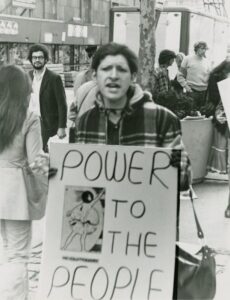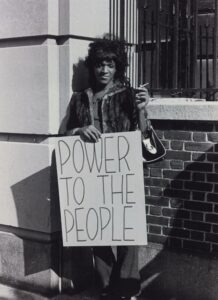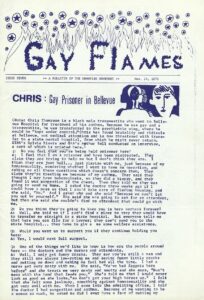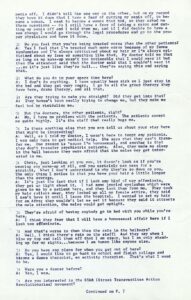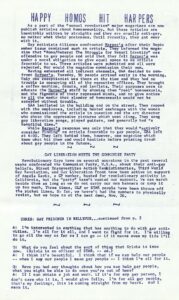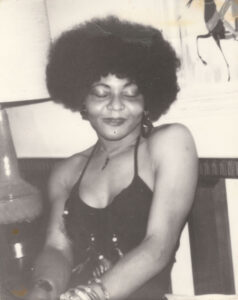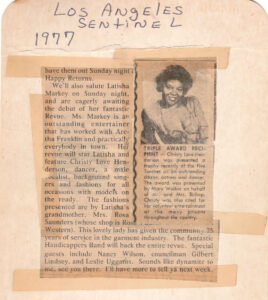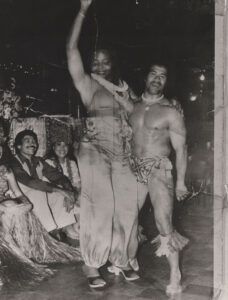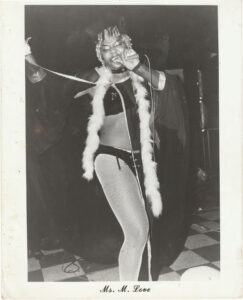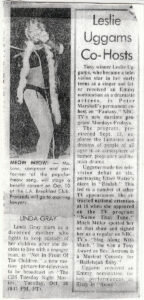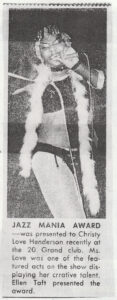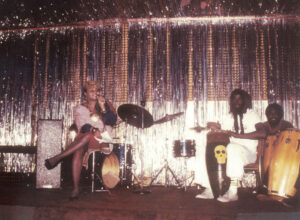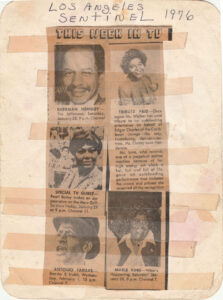Christy Henderson-Jenkins was born on November 11th, 1949. She spent her childhood years in Philadelphia before moving to Arizona with her mother and stepfather at age 12.
Christy’s upbringing was filled with loving figures, many of whom helped keep her safe as she navigated her identity as a trans woman. From a principal who protected her right to present as feminine at school, to the grandmother who “set everybody straight in the house,” Christy credits her success and survival to the fact that God blessed her with such good advocates. But there was strife around her identity, too; in particular, her mother feared that Christy’s identity might put her in physical danger.
At school, Christy was also fighting a second battle. As one of only seven Black students, she faced prejudice and discrimination every day. She and her peers responded to the tension by looking out for one another and forming a network of support. This solidarity is reminiscent of the unity Christy valued about the Black Panthers, with whom she was involved for several years. An activist her whole life, Christy describes herself as a pioneer of the Black trans movement in New York.
At age 17, Christy was arrested in the Stonewall rebellion. She was later transferred to Bellevue Hospital, where she was institutionalized without her consent due to her trans identity. At Bellevue, Christy endured mistreatment, intimidation, and forced electroshock therapy. Arthur Bell and Sylvia Rivera exposed her story in a Gay Flames article, “CHRIS: Gay Prisoner in Bellevue” (using her dead name, Chris Thompson). While her friends Sylvia Rivera and Marsha P. Johnson crusaded for her release – the first of many protests they would organize at Bellevue – Christy was held in the hospital for nearly a year.
After her release from Bellevue, Christy went back to school and rediscovered her love for performance. She studied music, singing, and acting, eventually embarking on a theater career that ranged from performances in Europe to a stint as a Playboy Bunny in L.A. In show business, Christy faced gender and race-based discrimination, and struggled to escape limiting labels like “drag queen” and “female impersonator.” “I don’t like labels,” she proclaims in her interview. “I’m just Christy, the entertainer.”
In 1986, Christy and her partner of 15 years separated. The separation inadvertently led to Christy’s interactions with the Grim Sleeper, a South Central Los Angeles serial killer who targeted Black women and sex workers. Though Christy escaped with her life, she was traumatized – not just by her experiences, but by the justice system’s repeated indifference towards the killer’s victims. Christy’s story is further documented in her book Nowhere to Fit In: Survivor of the Grim Sleeper, which she describes as an opportunity to turn her power and strength into a book for all.
In her interview, Christy describes herself as a survivor, a fighter, and a pioneer. She is proud to say that she has always known how to stand up for herself; it is this sense of confidence that so beautifully radiates through her experiences, stories, and thoughts. Today, Christy serves on the executive committee of the Stonewall Rebellion Veterans’ Association, where she continues to advocate for self-love, self-acceptance, and the importance of unity in the queer community.

